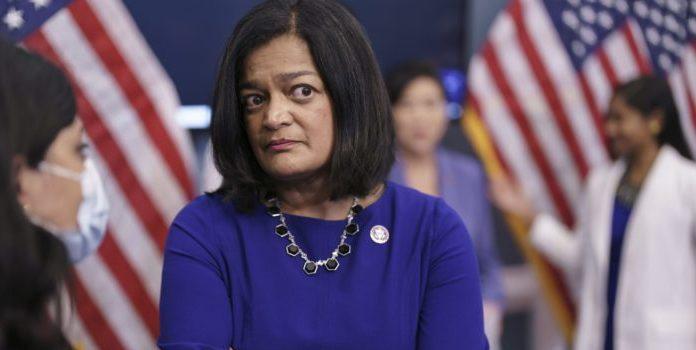(Headline USA) With less than two months until the midterm elections, so-called progressive Democrats are facing a test of their power, along with a test of voters’ capacity for the pain that radical leftist policies and agendas are inflicting on the country.
Their party is heading into the final stretch of the campaign with a dubious set of legislative partisan wins that include pushing long-term radical priorities on issues ranging from prescription drug prices to climate change.
But the Left has also faced a series of disappointments as Democrat voters from Ohio to Illinois to Texas rejected high-profile progressive challengers to moderates or incumbent members of Congress during the primary season.
The frustration is particularly acute in New York, where Rep. Alexandria Ocasio-Cortez defeated one of the highest-ranking congressional Democrats four years ago, injecting fresh energy among the party’s most liberal voters.
This year, after seeing firsthand the damage and division AOC has created, New York City Democrats chose Dan Goldman, a former federal prosecutor who is more of a centrist, over several progressive rivals, including freshman Rep. Mondaire Jones.
About 30 miles north in the Hudson River Valley, a powerful establishment candidate, Rep. Sean Patrick Maloney, defeated a state lawmaker running to his left and backed by Ocasio-Cortez.
Those setbacks have raised fresh questions about the progressive movement’s standing among Democrats. Progressive leaders urge against reading too much into those losses, particularly in New York, where they are scrambling for excuses like repeated elections this summer after a redistricting battle left some voters disoriented or disengaged.
“New York was just a mess,” said Washington Rep. Pramila Jayapal, chair of the Congressional Progressive Caucus. “It was like the timing of the redistricting maps. I mean, that’s not a situation that’s going to get repeated a lot.”
Progressives have notched notable victories this year, mainly in far-leftist cities and blue states. In Oregon, Jamie McLeod-Skinner ousted moderate Rep. Kurt Schrader. Activist Maxwell Alejandro Frost topped a crowded field of Democrats in Florida and is poised to become the youngest member of Congress. And labor organizer Summer Lee edged out an establishment-backed candidate in Pennsylvania.
But those wins risk becoming the exception rather than the rule as moderates have repeatedly asserted their strength in recent years. President Joe Biden won his party’s nomination in 2020 after overcoming challenges from more liberal contenders including Sens. Bernie Sanders of Vermont and Elizabeth Warren of Massachusetts. After running as an alleged moderate, Biden has since turned radical leftist, embracing enormous tax-and-spend bills and pushing division instead of unity.
In New York City, Eric Adams defeated several rivals from the left for the party’s mayoral nomination last year with an explicit critique of progressives, including Ocasio-Cortez. And New York Gov. Kathy Hochul easily dispatched a more liberal rival during this summer’s primary.
“Progressive” has long been a squishy label for Democrats. It generally refers to the party’s left flank but has been embraced by rank-and-file liberals as well as those much further left on the spectrum, including self-described democratic socialists like Ocasio-Cortez and Sanders.
The term “progressive” was even the subject of the first 2016 Democratic presidential debate between Sanders and former Secretary of State Hillary Clinton, with Sanders suggesting Clinton was not sufficiently progressive and Clinton disputing that and calling him the “self-proclaimed gatekeeper for progressivism.”
Some candidates championed by progressives have grappled with the label this year.
“No, I’m just a Democrat,” radical leftist Pennsylvania Senate candidate John Fetterman said in a May interview with NBC when he was asked if he is a progressive. He said his positions were considered progressive six years ago but “now there isn’t a single Democrat in this race or any race that I’m aware of that’s running on anything different. So that’s not really progressive. That’s just where the party is.”
NEW: Here is John Fetterman — once again — calling for one-third of inmates to be released.
This is at least the 14th time Fetterman has advocated for such a radical policy. pic.twitter.com/iHGvjVaQaD
— RNC Research (@RNCResearch) September 27, 2022
Texas Rep. Jasmine Crockett, who won a Democratic congressional primary in May and was endorsed by the Congressional Progressive Caucus, told Politico that she’d been labeled a progressive but knows most of the Democrat voters in the Dallas-area seat where she’s running identify as moderates or conservatives.
Crockett said that means she won’t align with members of the further-left subset of progressives in the House known as the “Squad,” which includes Ocasio-Cortez and has been known for challenging the party’s establishment.
“I’ve got to be very cognizant. Honestly, I love so many members of the ‘Squad’ and I think that they do right by their districts,” Crockett said. “I think in my district, while they don’t self-identify as progressive, they love a lot of the things that I stand for.”
Bill Neidhardt, a progressive Democrat strategist who worked for liberal former New York Mayor Bill de Blasio, said that while there have been noted losses in recent contests, the Democratic Party’s left flank has seen bright spots.
“It’s not a perfect record, but it never is in elections. I would challenge anyone to show me one of those,” Neidhardt said.
Neidhardt said progressives in Congress can point to growing political power, such as Biden’s recent student loan debt forgiveness plan or Democrats’ new law, the Inflation Reduction Act, tackling climate change and capping prescription drug costs.
“That’s got the progressives’ fingerprints all over it,” he said of the policies that are bankrupting the nation and causing consumers financial hurt on all fronts.
Adapted from reporting by the Associated Press

